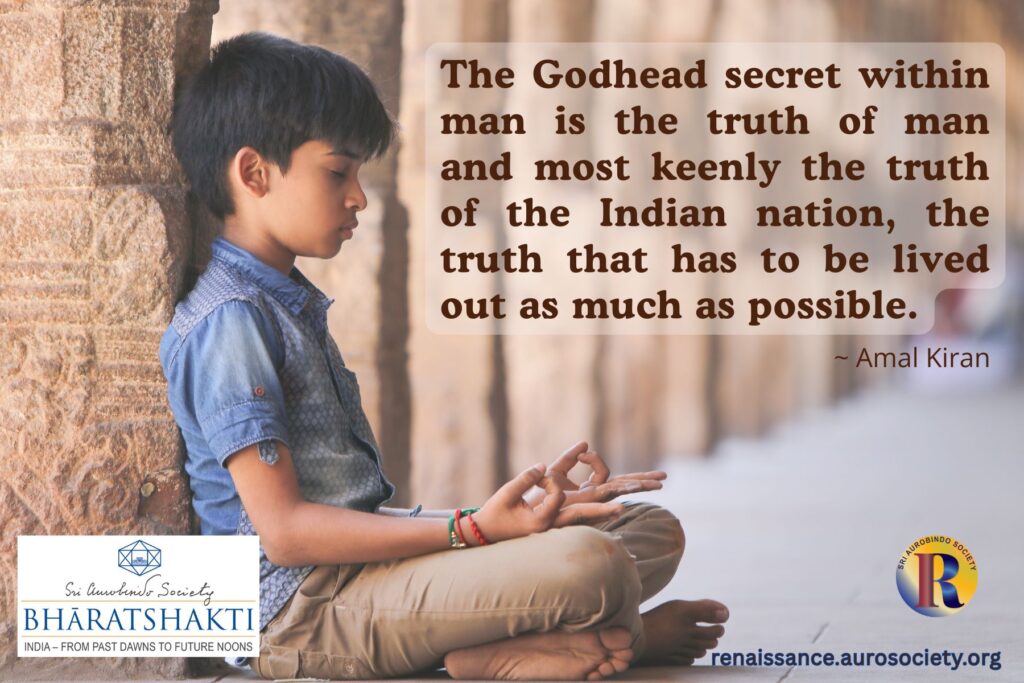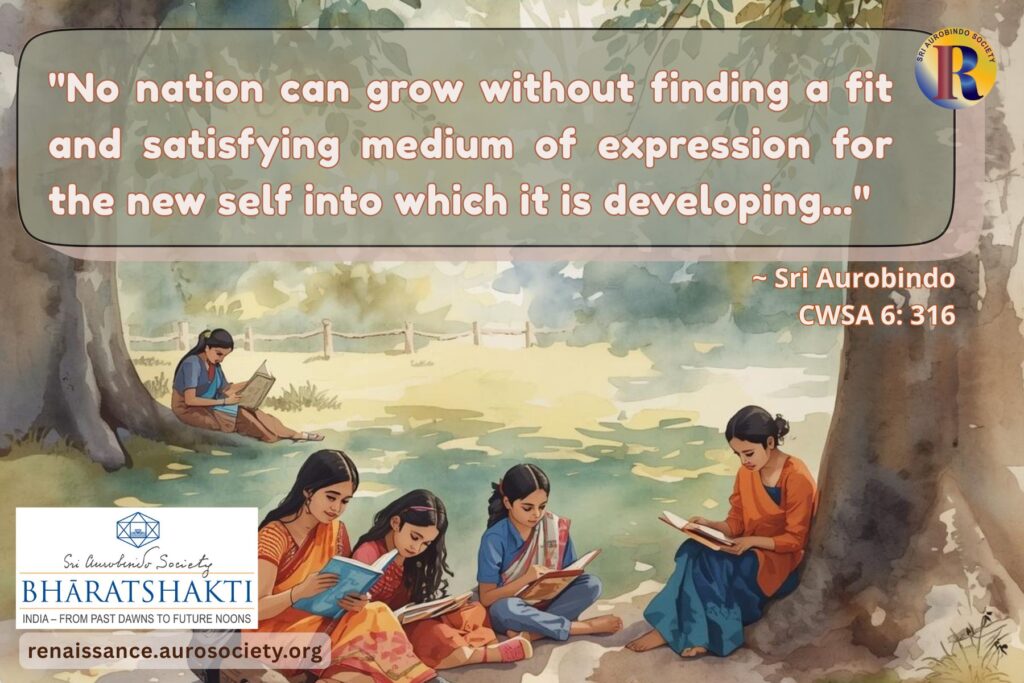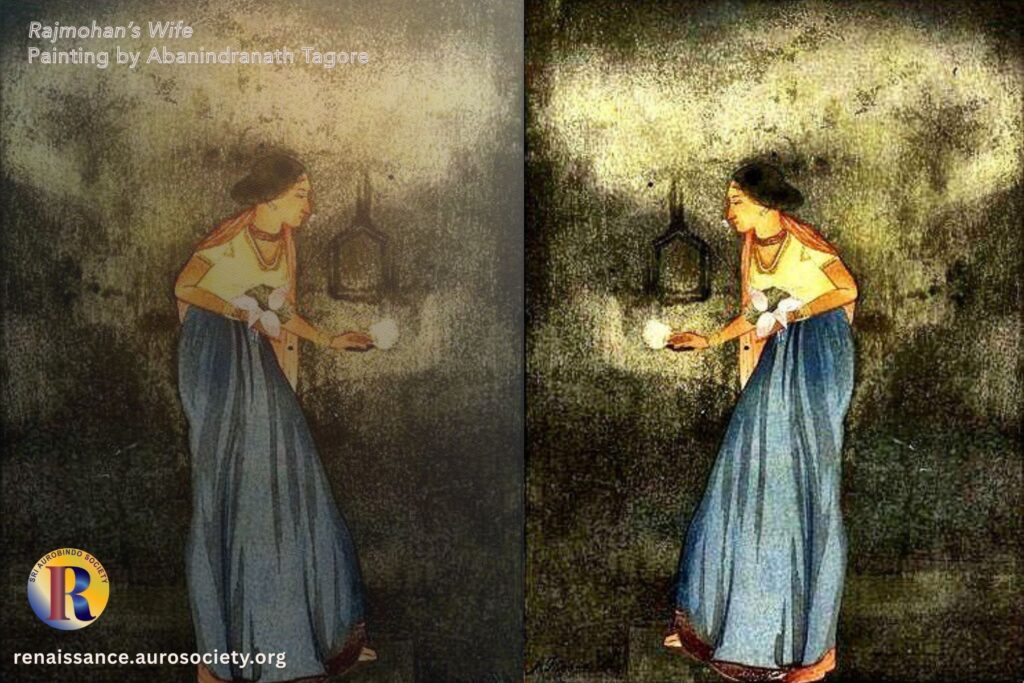Editor’s Note: Sri Aurobindo and the Mother explain that to control money one needs to follow a certain rhythm of the money-power. This includes spending money in the right way constantly and not hoarding it. We also feature a passage in which Sri Aurobindo describes the ideal of the Vaishya soul-force. As per Integral Yoga psychology, nature expresses its life powers through four different soul-forces, Brahmana, Kshatriya, Vaishya and Shudra. The term ‘Vaishya’ here refers to the particular soul-force and not a group of people.
We have made a few minor formatting changes for the purpose of this digital presentation.
🌸
Rhythm of the money-power
Disciple: You said about the forces that control money that two conditions were necessary. First, one must be very calm and must not get disturbed and have no desire for money. Secondly, it requires a bojhāpaḍā — an understanding — with the universal forces. What is this understanding?
Sri Aurobindo: There are many ways. Even in the case of one man there are different methods, I mean in the yogic sense, which he can follow.
First, you must put your need before God and ask Him to satisfy it; your duty ends there.
In that case you need not have any bojhāpaḍā with the universal forces.
But we look upon money as a power of the Divine, and, as with everything else, we want to conquer it for the Divine in life. Hence, in our case an ‘understanding’ is necessary. As the money-power today is in the hands of the hostile forces, naturally, we have to fight them.
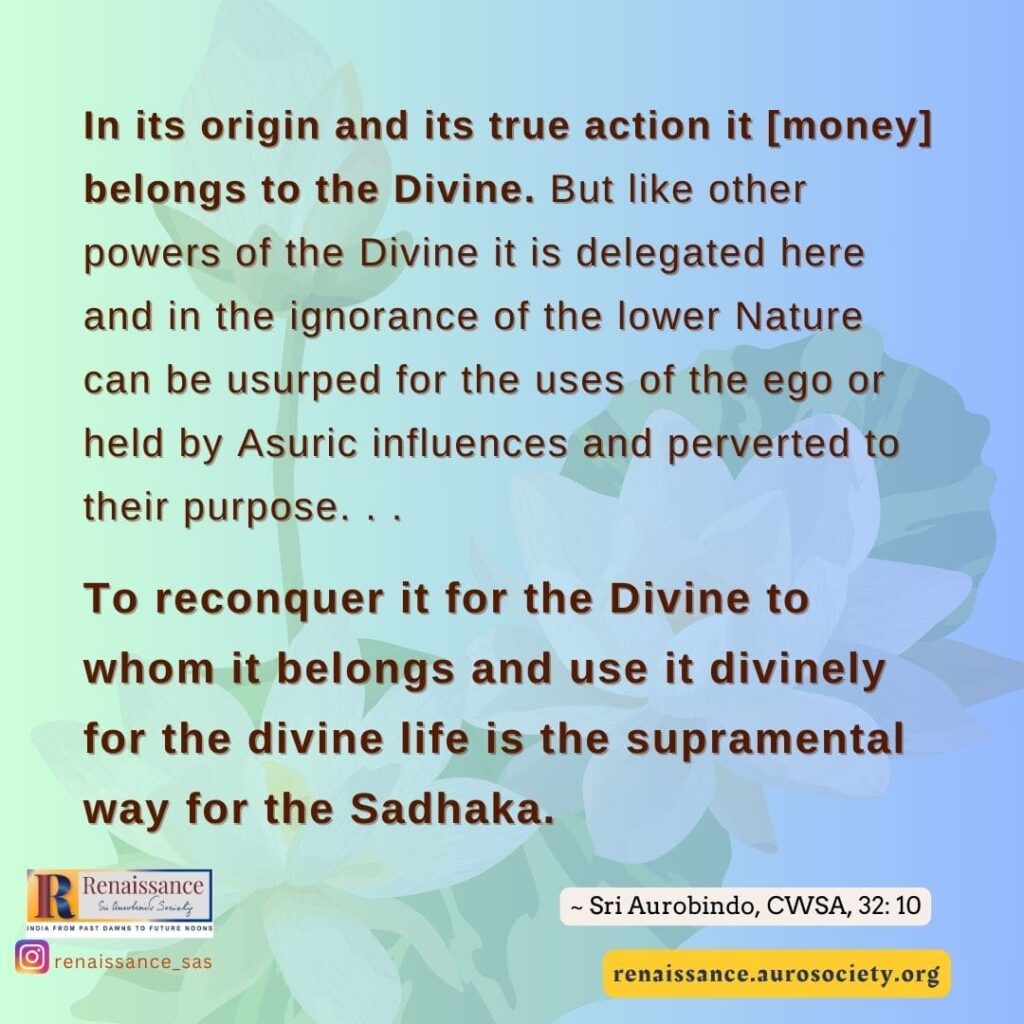
Whenever they see that you are trying to oust them they will try to thwart your efforts. You have to bring a Higher Power than these and put them down. First, they try to trick you by offering success, one can say, by trying to buy you up. If a man falls into that trap then his spiritual future is ruined.
You have really to follow a certain rhythm of the money-power, the rhythm that brings in and the one that throws out money. Money is given to you in the beginning; then, you have to deserve it. You have to prove that you do not waste it. If you waste it, then you lose your right to it.
Disciple: What is waste?
Sri Aurobindo: Waste is waste. Throwing away money without any order, unorganised expenses without regard to the means of getting money or to the utility of spending. It is not that you have to hoard money. It is there for being spent. But we must spend it in the right way — in a certain order and with an arrangement. Sometimes the Divine even follows man’s caprices, as is typified in the case of men like Thakur Dayananda.
Disciple: Yes. Whatever he gets must be spent away on that very day, that is the rule; and they all wait till they get their next day’s food.
Sri Aurobindo: The result is that sometimes for seven days they get so much food that they can’t eat it and then for fifteen days they have to starve!
Disciple: Even the young children go without food for that period.
Sri Aurobindo: Well, that is a chaotic movement; but he follows it!
Disciple: Even the industrial magnates who get money get into that rhythm of which you spoke.
Sri Aurobindo: Of course, they do, otherwise they can’t get rich. They take it in and then again they throw it out, then it returns and again it is thrown out. That is the reason why they get colossal wealth. These rich people often have no attachment to money, it is the action of the vital force that they enjoy, not their money.
Disciple: It is a life-movement.
Sri Aurobindo: Yes. That was the ideal of the Vaishya as opposed to the Bania. The Vaishya was the man who could get tremendous wealth and could spend it liberally, could establish the interchange and enter into the rhythm.
Disciple: But these Marwadis who are very rich are attached to their wealth.
Sri Aurobindo: No.
Disciple: No, they are not. We think them greedy because they don’t give money in the way in which we want them to give. They generally spend it in the old conventional way. We think them greedy also because they are particular about small things in their business — caring for pies.
Sri Aurobindo: It is very necessary. It is exactly that which brings them the money.
Disciple: Henry Ford has also got that habit and so has become rich. He describes in his biography how he started with the idea not of making money but of giving people a quick conveyance at a small price.
Sri Aurobindo: The Americans have got the knack of getting into the rhythm which brings them money. The French method, for instance, does not succeed because they follow out small narrow paths, while the Americans boldly get into the movement on a large scale and money circulates and as it circulates it accumulates and increases life wherever it flows.
~ Excerpted from ‘Evening Talks with Sri Aurobindo’,
Recorded by A. B. Purani, 6 September 1926 (Third series, pp. 336-338)
***
Read:
The More Money We Have, the More We Need…
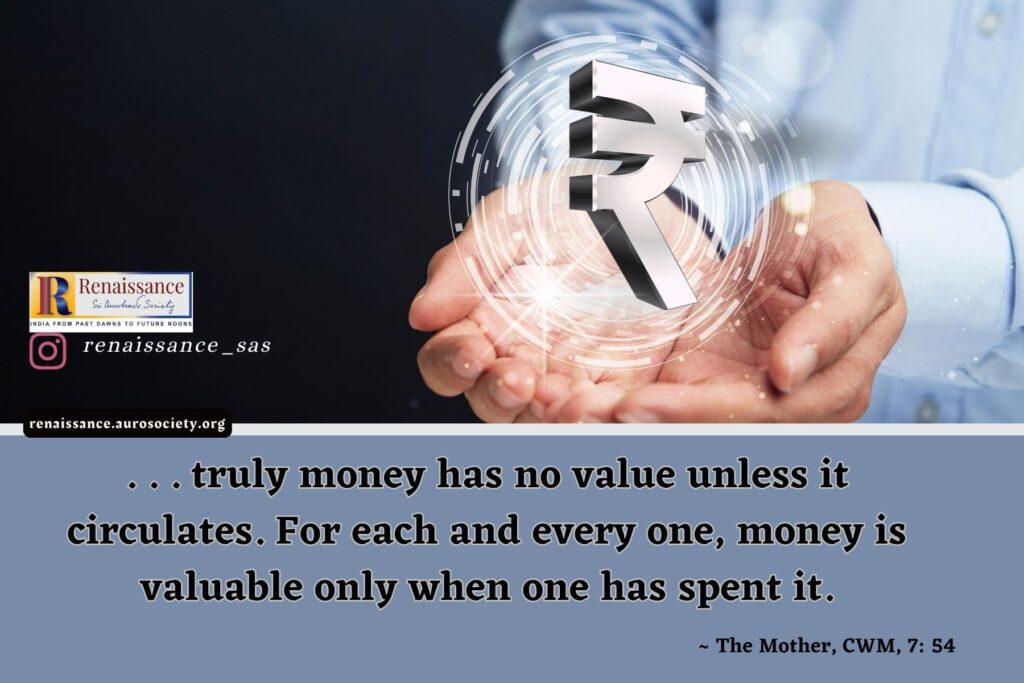
Money belongs to the one who spends it
Money belongs to the one who spends it; that is an absolute law. You may pile up money, but it doesn’t belong to you until you spend it. Then you have the merit, the glory, the joy, the pleasure of spending it! Money is meant to circulate.
What should remain constant is the progressive movement of an increase in the earth’s production—an ever-expanding progressive movement to increase the earth’s production and improve existence on earth. It is the material improvement of terrestrial life and the growth of the earth’s production that must go on expanding, enlarging, and not this silly paper or this inert metal that is amassed and lifeless.
Money is not meant to generate money; money should generate an increase in production, an improvement in the conditions of life and a progress in human consciousness. This is its true use.
What I call an improvement in consciousness, a progress in consciousness, is everything that education in all its forms can provide—not as it is generally understood, but as we understand it here: education in art, education in. . . from the education of the body, from the most material progress, to the spiritual education and progress through yoga; the whole spectrum, everything that leads humanity towards its future realization.
Money should serve to augment that and to augment the material base for the earth’s progress, the best use of what the earth can give—its intelligent utilization, not the utilization that wastes and loses energies. The use that allows energies to be replenished.
In the universe there is an inexhaustible source of energy that asks only to be replenished; if you know how to go about it, it is replenished. Instead of draining life and the energies of our earth and making of it something parched and inert, we must know the practical exercise for replenishing the energy constantly. And these are not just words; I know how it’s to be done, and science is in the process of thoroughly finding out—it has found out most admirably.
But instead of using it to satisfy human passions, instead of using what science has found so that men may destroy each other more effectively than they are presently doing, it must be used to enrich the earth: to enrich the earth, to make the earth richer and richer, more active, generous, productive and to make all life grow towards its maximum efficiency. This is the true use of money.
– The Mother (Agenda, Vol. 1, pp. 204-205)
***

The Ideal of the Vaishya Soul-force
[The turn of the nature towards Vaisya soul-force] brings out into relief the practical arranging intelligence and the instinct of life to produce, exchange, possess, enjoy, contrive, put things in order and balance, spend itself and get and give and take, work out to the best advantage the active relations of existence.
In its outward action it is this power that appears as the skilful devising intelligence, the legal, professional, commercial, industrial, economical, practical and scientific, mechanical, technical and utilitarian mind.
This nature is accompanied at the normal level of its fullness by a general temperament which is at once grasping and generous, prone to amass and treasure, to enjoy, show and use, bent upon efficient exploitation of the world or its surroundings, but well capable too of practical philanthropy, humanity, ordered benevolence, orderly and ethical by rule but without any high distinction of the finer ethical spirit, a mind of the middle levels, not straining towards the heights, not great to break and create noble moulds of life, but marked by capacity, adaptation and measure.
The powers, limitations and perversions of this type are familiar to us on a large scale, because this is the very spirit which has made our modern commercial and industrial civilisation.
But if we look at the greater inner capacities and soul-values, we shall find that here also there are things that enter into the completeness of human perfection.
The Power that thus outwardly expresses itself on our present lower levels is one that can throw itself out in the great utilities of life and at its freest and widest makes, not for oneness and identity which is the highest reach of knowledge or the mastery and spiritual kingship which is the highest reach of strength, but still for something which is also essential to the wholeness of existence, equal mutuality and the exchange of soul with soul and life with life.
Its powers are,
- first, a skill, kauśala, which fashions and obeys law, recognises the uses and limits of relations, adapts itself to settled and developing movements, produces and perfects the outer technique of creation and action and life, assures possession and proceeds from possession to growth, is watchful over order and careful in progress and makes the most of the material of existence and its means and ends;
- then a power of self-spending skilful in lavishness and skilful in economy, which recognises the great law of interchange and amasses in order to throw out in a large return, increasing the currents of interchange and the fruitfulness of existence;
- a power of giving and ample creative liberality, mutual helpfulness and utility to others which becomes the source in an open soul of just beneficence, humanitarianism, altruism of a practical kind;
- finally, a power of enjoyment, a productive, possessive, active opulence luxurious of the prolific Ananda of existence.
A largeness of mutuality, a generous fullness of the relations of life, a lavish self-spending and return and ample interchange between existence and existence, a full enjoyment and use of the rhythm and balance of fruitful and productive life are the perfection of those who have this Swabhava and follow this Dharma.
– Sri Aurobindo (CWSA, Vol. 24, pp. 745-746)
🌸🌸🌸

Also Read:
Sri Aurobindo on Economic Barbarism, Business and Dharma
~ Design: Beloo Mehra and Raamkumar

